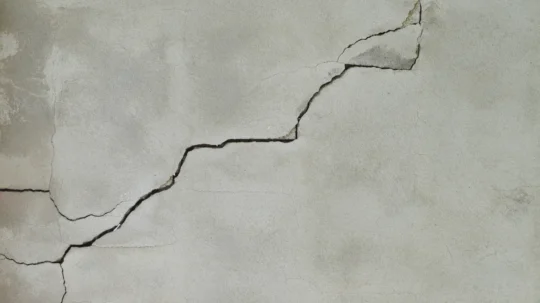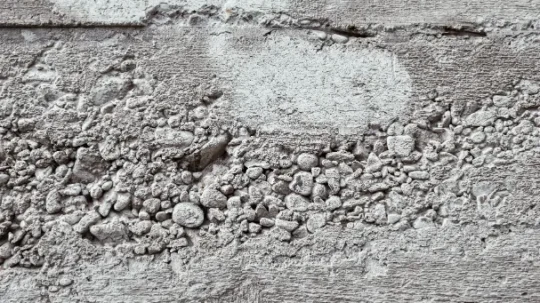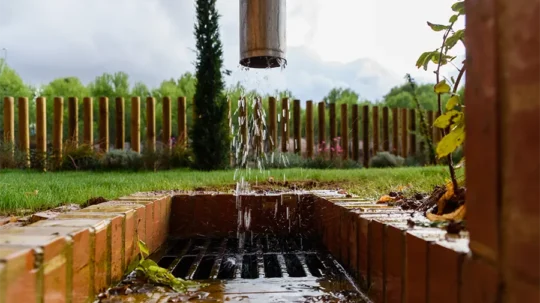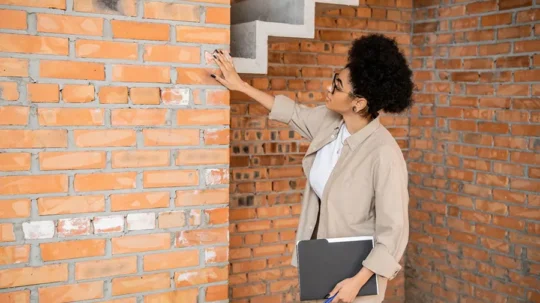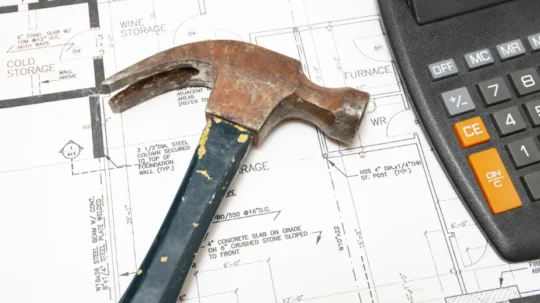
While homeowners can spot early warning signs of foundation issues, certain problems require a professional foundation inspection to ensure safety and stability. Small cracks or minor settling might not seem urgent, but they can be indicators of larger structural issues that need expert evaluation.
A home foundation expert can assess hidden damage, soil conditions, and structural integrity, providing a thorough foundation assessment beyond what a DIY inspection can reveal. Without proper intervention, minor foundation problems can escalate into costly repairs or even safety hazards.
This guide will help you determine when to call a professional for a foundation inspection and what warning signs to look for. If your home shows any of the following symptoms, a structural evaluation is necessary to prevent further damage.
Protect Your Home’s Foundation – Know When to Call an Expert!
Signs That You Need a Professional Foundation Inspection
Some foundation issues can be monitored over time, while others require immediate professional attention. Ignoring early warning signs can lead to serious home foundation damage and costly repairs. Below are key indicators that it’s time for a professional foundation inspection.
1. Exterior Warning Signs
- Large Foundation Cracks Wider Than ¼ Inch – While small hairline cracks are normal, large or widening cracks may signal structural instability.
- Gaps Between the Foundation and Exterior Walls – If your home’s siding, brickwork, or stucco appears to be separating from the foundation, it’s a sign of shifting.
- Bowing or Leaning Foundation Walls – This can result from hydrostatic pressure, soil movement, tree roots growing under the foundation, or structural failure, all requiring immediate evaluation by an expert.
2. Interior Warning Signs
- Uneven or Sagging Floors – If certain areas of your home feel sloped or unstable, foundation settlement or shifting support beams may be the cause.
- Doors or Windows That Won’t Close Properly – Misaligned frames often indicate foundation movement or sinking.
- Visible Separation in Walls, Ceilings, or Floors – Gaps between drywall panels, baseboards pulling away, or ceiling cracks suggest foundation shifting.
3. Basement or Crawl Space Red Flags
- Water Leaks, Standing Water, or Excessive Moisture – Persistent dampness can lead to mold growth and accelerate foundation deterioration.
- Mold or Mildew Growth Due to Foundation Leaks – A musty odor or visible mold growth can signal water seeping through foundation cracks.
- Crumbling or Shifting Foundation Piers in Crawl Spaces – If support columns show signs of wear, a foundation expert should assess the structural integrity.
Noticed These Signs? Schedule a Professional Foundation Inspection Today!
How Professionals Assess Foundation Damage
A professional foundation inspection goes beyond a visual check, using advanced tools and techniques to assess the severity of the damage. While DIY inspections can help homeowners identify early warning signs, foundation specialists use specialized equipment to evaluate structural stability, soil conditions, and potential risks more accurately.
How Professional Inspections Differ From DIY Checks:
- Use of Specialized Tools – Laser levels, moisture meters, and pressure sensors provide precise measurements of foundation movement and moisture infiltration.
- Evaluation of Structural Integrity – Inspectors analyze foundation walls, support beams, and load-bearing structures to determine stability.
- Soil and Drainage Analysis – Professionals assess how soil composition, water tables, and drainage systems affect foundation stability.
- Long-Term Monitoring – Experts track foundation movement over time, identifying patterns and determining the most effective repair strategies.
Step-by-Step Professional Foundation Inspection Process:
- Initial Consultation – Homeowners describe concerns, past foundation issues, and visible damage.
- Exterior Inspection – Experts check for cracks, grading issues, and signs of soil erosion around the foundation.
- Interior Inspection – Floors, walls, and ceilings are examined for misalignment, sloping, and structural shifting.
- Soil and Moisture Testing – Inspectors analyze soil conditions and moisture levels to identify potential drainage or expansion issues.
- Detailed Report & Recommendations – A comprehensive assessment is provided, outlining necessary repairs and preventative measures.
If foundation damage is detected, professionals will recommend repair solutions such as underpinning, pier installation, or waterproofing systems to restore stability.
The Cost of Ignoring Foundation Problems
Delaying a foundation inspection can turn a minor issue into a major structural problem, costing homeowners thousands in repairs. What may seem like a small crack today could escalate into severe foundation movement, leading to significant safety risks and costly restorations.
Consequences of Neglecting Foundation Problems:
- Worsening Cracks & Structural Weakness – Small cracks widen over time, creating weak points that compromise the foundation’s integrity.
- Water Damage & Mold Growth – Leaks through foundation cracks increase moisture levels, leading to basement flooding and mold infestations.
- Uneven Flooring & Structural Instability – As the foundation shifts, floors may become sloped, doors and windows misaligned, and walls begin to bow.
- Decreased Property Value – Homes with foundation issues are more difficult to sell, often requiring costly repairs before passing inspections.
By scheduling routine inspections, homeowners can prevent minor issues from escalating, ensuring long-term structural stability and avoiding unnecessary expenses.
Who to Call for a Professional Foundation Inspection?
Choosing the right professional for a foundation inspection ensures you receive accurate assessments and trustworthy recommendations. Different experts specialize in various aspects of foundation evaluation and repair.
Experts to Contact for Foundation Inspections:
- Structural Engineers – Provide unbiased assessments and detailed reports without selling repair services.
- Foundation Repair Specialists – Inspect damage and offer customized repair solutions such as pier installation or soil stabilization.
- Waterproofing Contractors – Evaluate moisture-related issues that contribute to foundation movement and recommend drainage solutions.
How to Choose the Right Professional:
- Check Certifications & Experience – Look for licensed and insured experts with a strong track record in foundation assessment and repair.
- Read Reviews & Testimonials – Customer feedback provides insight into service quality and reliability.
- Request a Detailed Report – A comprehensive inspection should include clear findings and actionable repair recommendations.
When to Call a Professional for Foundation Inspections: Final Thoughts
Regular foundation inspections can help homeowners detect issues early and avoid expensive repairs down the road. Acting quickly at the first sign of foundation damage ensures stability, prevents costly restorations, and protects your home’s value.
Ignoring minor foundation problems can lead to major structural failures, increasing repair costs and safety risks. If you notice cracks, uneven floors, or moisture intrusion, consulting a professional for an inspection is the best course of action.
Take Action Today – Schedule a Professional Foundation Inspection!



